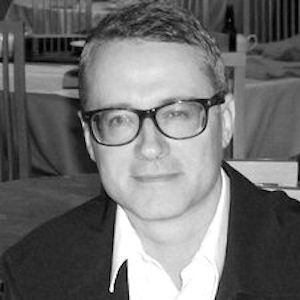
Dr. Rose is a Distinguished Professor of Ecology and Evolutionary Biology at UC Irvine. He received his PhD from the University of Sussex in 1978.
He is a prolific biologist whose research into the evolution of aging has effectively transformed that field. His main area of work has been the evolution of aging, approached both theoretically and empirically via the technique of experimental evolution.
In 1991, he published Evolutionary Biology of Aging, exploring a view of the subject based on antagonistic pleiotropy, the hypothesis that aging is caused by genes that have two effects: one acting early in life, and the other much later. These genes are favored by natural selection as a result of their early-life benefits. The costs that accrue much later appear as incidental side-effects that we identify as aging. Dr. Rose has also suggested that it is possible that aging can stop in a latter stage of life.

Dr. Campisi received a PhD in biochemistry from the State University of New York at Stony Brook and completed her postdoctoral training in cell cycle regulation at the Dana-Farber Cancer Institute and Harvard Medical School. As an assistant and associate professor at the Boston University Medical School, she studied the role of cellular senescence in suppressing cancer and soon became convinced that senescent cells also contributed to aging. She joined the Lawrence Berkeley National Laboratory as a senior scientist in 1991. In 2002, she started a second laboratory at the Buck Institute. At both institutions, Dr. Campisi established a broad program to understand the relationship between aging and age-related disease, with an emphasis on the interface between cancer and aging.
Dr. Campisi is a member of the National Academy of Sciences and a fellow of the American Association for the Advancement of Science.
She has received numerous awards for her research, including two MERIT awards from the National Institute on Aging and awards from the AlliedSignal Corporation, Gerontological Society of America, and American Federation for Aging Research. She is a recipient of the Longevity prize from the IPSEN Foundation, the Bennett Cohen award from the University of Michigan, and the Schober award from Halle University, and she is the first recipient of the international Olav Thon Foundation prize in Natural Sciences and Medicine. Dr. Campisi currently serves on advisory committees for the Alliance for Aging Research, Progeria Research Foundation, and NIA’s Intervention Testing Program. She is also an editorial board member for more than a dozen peer-reviewed journals. Dr. Campisi is a scientific founder of Unity Biotechnology, a California-based company focused on developing therapies for age-related pathologies. She has served on the scientific advisory boards of the Geron Corporation, Sierra BioScience, and Sangamo Biosciences.
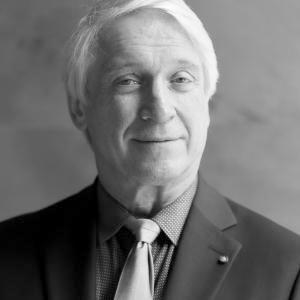
Stephen Hinshaw is Professor of Psychology at the University of California, Berkeley, where he was Department Chair from 2004-2011. He is also Professor of Psychiatry and Behavioral Sciences, and Vice-Chair for Child and Adolescent Psychology, at the University of California, San Francisco. He received his B.A. from Harvard (summa cum laude) and, after directing school programs and residential summer camps, his doctorate in clinical psychology from UCLA, before performing a post-doctoral fellowship at the Langley Porter Institute of UC San Francisco.
His work focuses on developmental psychopathology, clinical interventions with children and adolescents (particularly mechanisms underlying therapeutic change), and mental illness stigma. He has directed research programs and conducted clinical trials and longitudinal studies for boys and—more recently—for girls with inattention and impulse-control problems (who often express many comorbid disorders), having received over $20 million in NIH funding and an equal amount in foundation funding. He has been Principal Investigator of the Berkeley site for the Multimodal Treatment Study of Children with ADHD (MTA) since 1992. He is co-director of the UCSF-UC Berkeley Schwab Dyslexia and Cognitive Diversity Center, and he directs the UCLA -UC Berkeley Awareness and Hope (stigma reduction) component of the UCLA Depression Grand Challenge.
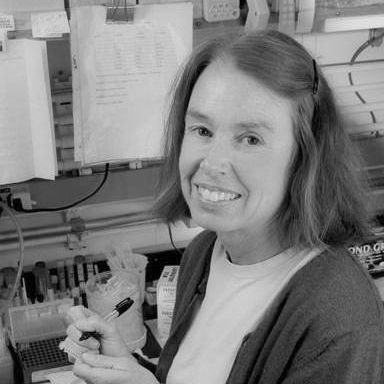
Dr. Maher has a Ph.D. in biochemistry from the University of British Columbia. She was formerly an associate professor at The Scripps Research Institute in La Jolla. In 2004, she moved to her current position as a research scientist at the Salk Institute for Biological Studies.
Her research has centered on understanding responses of nerve cells to oxidative stress, and how chemical compounds can modulate these responses to enhance nerve cell function and survival. Her current work is focused on using natural products such as flavonoids to maintain nerve cell function in the presence of toxic insults. Flavonoids are a diverse class of secondary metabolites found in almost all fruits and vegetables.
Maher and her colleagues have been focusing their attention particularly on a few of these flavonoids as potential neuroprotective agents. One of these is fisetin, a flavonoid that is most highly concentrated in strawberries, and another is sterubin, a flavonoid found in Yerba santa, a plant that native tribes in California have long prized for its medicinal properties.
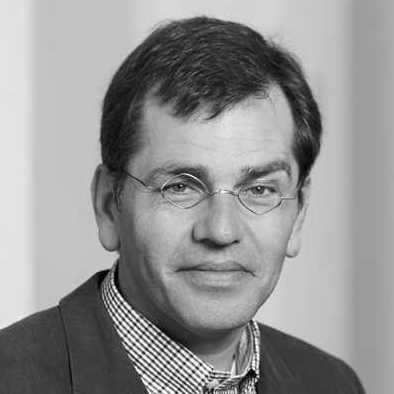
The research lab of Professor Ristow is interested in the biochemical and molecular basis of longevity — in particular the role played by mitochondria in lifespan regulation and prevention of metabolic diseases.
Contrary to the widely re-iterated Free Radical Theory of Aging, theirs has been the first laboratory to show that the health-promoting effects associated with low caloric intake, physical exercise and other lifespan-extending interventions like sirtuin signaling are caused by increased formation of Reactive Oxygen Species (ROS) within the mitochondria. This results in a vaccination-like adaptive response that culminates in increased stress resistance and extended longevity, a process called mitohormesis.
They primarily work with the roundworm C. elegans and mammalian model organisms (mainly mice), as well as (occasionally) humans.
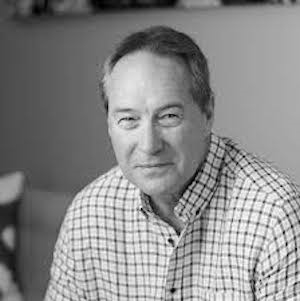
The Robbins Lab focuses on pathways important for driving autoimmune and inflammatory diseases as well as age related degeneration are surprisingly similar. For example, inhibition of the transcription factor NF-κB is therapeutic in mouse models of autoimmunity and inflammation as well as Duchenne muscular dystrophy and aging. Similarly, inhibition of IL-1ß signaling by gene transfer of the IL-1 receptor antagonist protein is therapeutic in multiple models of diseases.
The Robbins laboratory is developing novel approaches to treat autoimmune (type 1 diabetes, rheumatoid arthritis), inflammatory (inflammatory bowel disease, delayed type hypersensitivity) and age-related degenerative diseases using biologics and small molecules. The therapeutic approaches being developed include: 1) AAV mediated gene transfer of anti-inflammatory or immunosuppressive agents; 2) Peptide and small molecule inhibitors of the transcription factor of NF-κB; 3) Novel osteogenic peptides; 4) Adult stem cells; 5) Microvesicles (exosomes) derived from immunoregulatory or stem cells able to block inflammation or promote regeneration; and 6) Identification of drugs able to reverse cellular senescence for improving healthy aging.
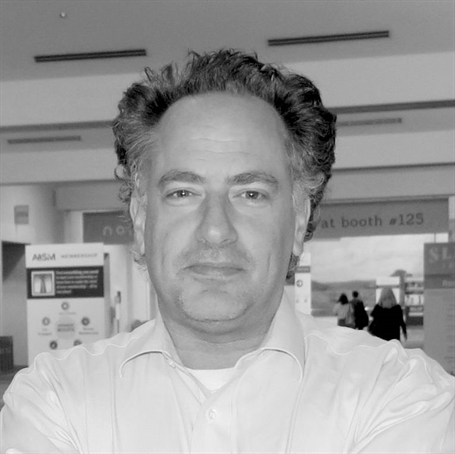
Dr. Zeitzer is a circadian physiologist specializing in the understanding of the impact of light on circadian rhythms and other aspects of non-image-forming light perception.
He examines the manner in which humans respond to light and ways to manipulate this responsiveness, with direct application to jet lag, shift work, and altered sleep timing in teens. Dr. Zeitzer has also pioneered the use of actigraphy in the determination of epiphenomenal markers of psychiatric disorders.

Dr. Kapahi received his PhD from the University of Manchester, where he worked with Tom Kirkwood. He did his postdoctoral work with Seymour Benzer at Caltech and Michael Karin at University of California, San Diego. He joined the Buck Institute as an assistant professor in 2004.
Dr. Kapahi has published more than 80 scientific papers and holds three current patents. He has been recognized for his scientific excellence with many awards, including the Eureka Award from the National Institute on Aging, a New Scholar Award from the Ellison Medical Foundation, a Glenn Award for Research in Biological Mechanisms of Aging, the Nathan Shock Young Investigator Award, and the Breakthrough in Gerontology and Julie Martin Mid-career awards from AFAR. He currently serves on the editorial board of Aging Cell, Aging, and PLOS Genetics. Dr. Kapahi also initiated the first master’s degree course in gerontology at the Buck Institute.

John Newman is an assistant professor at the Buck Institute for Research on Aging and in the Division of Geriatrics at University of California San Francisco (UCSF). His career goal is to translate our expanding understanding of aging biology to improve the care and help maintain the independence of older adults. His research at the Buck Institute studies the molecular details of how diet and fasting regulate the genes and pathways that in turn control aging, focusing on the ketone body beta-hydroxybutyrate and how its molecular signaling activities involving epigenetics and inflammation regulate aging and memory in mice.
Dr. Newman is also a geriatrician who cares for hospitalized older adults at UCSF and the San Francisco VA Medical Center, focusing on preserving mobility and preventing delirium. His undergraduate education was at Yale University, with a BS/MS in molecular biophysics and biochemistry that included studying growth factor signaling in the roundworm C. elegans. He completed an MD/PhD at the University of Washington, where his graduate work studies focused on the progeroid Cockayne syndrome with Dr. Alan Weiner. While at UW, he developed new bioinformatics tools for the analysis of patterns in gene expression data. He then completed a residency in internal medicine and fellowship training in geriatric medicine at UCSF. He is a National Institute on Aging Beeson Scholar.
Dr. Newman is a native of Long Island, New York, and a lifelong Mets fan. He has lived in San Francisco since 2008. He enjoys playing volleyball, watching baseball, exploring the natural beauty of the Bay Area, and having fun food experiences.

Julie has a Ph.D in neurobiological chemistry from UCLA, and subsequently did her post-doctoral fellowship in the department of neurology at Harvard.
Presently, she is a professor and researcher at the Buck Institute, an independent biomedical research institute that is dedicated to investigating aging and age-related disease. Her lab is working on identifying novel therapeutics to delay or prevent the age-related molecular processes that drive neurodegenerative diseases. For example, she and other researchers at the Buck have been investigating compounds that could clear out senescent cells, which have been linked to age-related functional decline, as we have discussed previously on several shows.
Recently, Julie and her colleagues received a grant from the NIH to examine a natural bioactive known as urolithin A. Unfortunately, the capacity to generate urolithin A also appears to decline with age. To that end, Julie and her team plan to try to rejuvenate the gut microbiota of older mice using targeted probiotics, which should enhance production of urolithin A. They will then track neuropathology, memory loss, and mortality in a rodent model of Alzheimer’s disease, and compare outcomes in mice treated with urolithin A and controls.
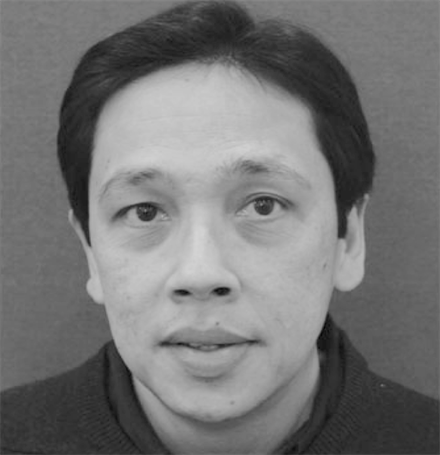
Ken is a Senior Scientific Group Leader at Public Health London, and has worked extensively with Dr. Steve Horvath of UCLA, developing and interpreting genomic biomarkers of aging.
Their work is most famously known for the “epigenetic clock” mentioned above, which came about when Dr. Horvath led a team of 65 scientists into seven countries to record age-related changes to human DNA, compare their biological age to their chronological age and use the “clock” to predict each person’s life expectancy.
The tool has proven to be remarkably effective in predicting how long someone will live, and is able to predict life expectancy with a margin of error of plus or minus three years. Higher biological age consistently predicted an earlier death, regardless of the person’s chronological age. Their study validated the use of DNA methylation as a biomarker for biological age, and is becoming increasingly valuable for studying what causes aging and what can be done to slow the process.
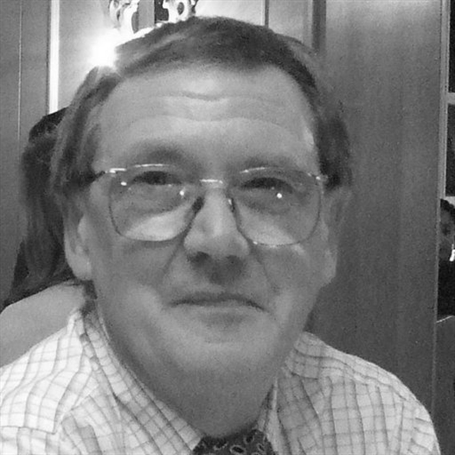
Dr. Hamblin was (recently retired) Principal Investigator at the Wellman Center for Photomedicine at Massachusetts General Hospital, and an Associate Professor at Harvard Medical School.
He was trained as a synthetic organic chemist and received his PhD from Trent University in England. He joined Wellman Labs in 1994. He worked initially in targeted photodynamic therapy (PDT) and prepared and studied conjugates between photosensitizers and antibodies or targeted proteins and polymers of varying charge.
There is perhaps no one alive with greater expertise in the health effects of red light therapy and near infrared light than Dr. Hamblin. He is a prolific researcher in photomedicine, having published over 400 peer-reviewed articles on the subject, as well as authored and edited 23 different textbooks.

Gloria is a professor in the department of informatics at UC Irvine. Her research area is human-computer interaction (HCI), studying how technology has impacted individuals, groups, and society. She is particularly interested in studying how people interact with information technology in their everyday life: how it affects multi-tasking, attention, mood, and above all, stress.
To study people and their technology use, she employs a method called precision tracking, which involves a combination of sensors, bio-sensors, experience sampling, surveys, and ethnographic techniques to gain a very detailed, comprehensive, and in-depth understanding of what people experience when they use computer technology.

Dr Nofzinger earned his M.D. degree from The Ohio State University College of Medicine and performed his Psychiatry training at the University of Pittsburgh School of Medicine.
Dr. Nofzinger invented Ebb based on research he performed as a Professor of Psychiatry and Director of the Sleep Neuroimaging Research Program at the University of Pittsburgh School of Medicine. A renowned expert in the science of sleep and a Past President of the Sleep Research Society, he has spent more than 35 years practicing sleep medicine and studying the brain mechanisms of healthy sleep and of sleeplessness.
At the University, his work defined the precise area of forehead coverage and precision therapeutic temperatures that make Ebb the successful product it is today. Dr. Nofzinger takes an active role in the leadership of the company, including the development of its first behavioral therapy program.
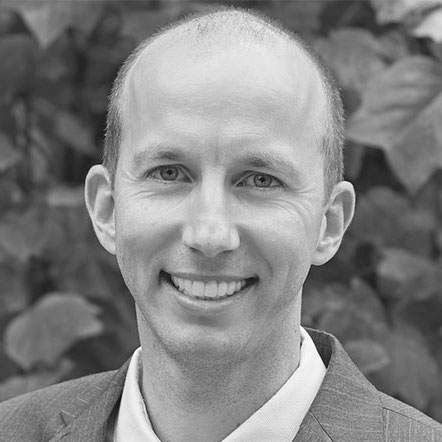
Dr. Pontzer’s research focuses on the physiology of humans and apes, and how ecology, lifestyle, diet, and evolutionary history affect metabolism and health.
Through laboratory and field studies, Dr. Pontzer’s work seeks to understand how our bodies evolved and how our evolutionary past shapes our lives today. His work also explores how ecology and evolution have influenced physical activity and the musculoskeletal system. To that end, he conducted the first measurements of daily energy expenditure in traditional hunter-gatherers, with some surprising findings.

Jeanne is an associate professor of medicine at Harvard Medical School, and a sleep researcher at Brigham and Women’s Hospital.
Her research interests include both basic and applied aspects of sleep research and circadian physiology. Her recent work has focused on understanding individual differences in sleep timing, duration, need, and response to acute and chronic sleep loss.
Her group has examined how different aspects of cognitive performance respond to sleep loss, and how those responses differ between groups. Their other work has focused on how features of circadian physiology differ between individuals and groups, and how those circadian rhythm differences contribute to individual differences in sleep.
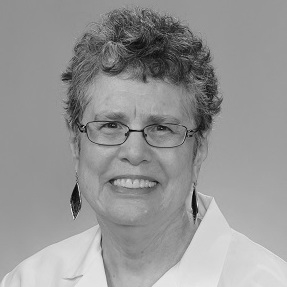
Professor Stein’s lab focuses on identifying markers for cardiovascular mortality, non-cardiovascular mortality, and nervous system dysfunction from continuous recordings of people’s hearts.
She also does work on sleep disorders, such as sleep apnea and other forms of sleep-disordered breathing, and she tries to integrate various physiological parameters to differentiate normal from abnormal sleep, then using the results to stratify people into different categories of risk.

Professor Phillips is a Tier 1 Canada Research Chair in Skeletal Muscle Health in Aging. In addition to being a full Professor in Kinesiology, also Graduate Faculty in the School of Medicine at McMaster University.
His research is focused on the impact of nutrition and exercise on the mechanisms of human skeletal muscle protein turnover. He is also keenly interested in diet- and exercise-induced changes in body composition particularly in older persons.
Dr. Phillips was the inaugural recipient of the Enzo Cafarelli Mentor Award in 2017. He is a past recipient of a New Investigator Award from the Canadian Institutes for Health Research and the Ontario Premier's Research Excellence Award and in 2003 received the Canadian Society for Exercise Physiology Young Investigator Award. He currently more than 32000 career citations and 250 research and review papers.

Javier joined the Department for Health at the University of Bath in 2014 as a Lecturer (Assistant Professor) in Human Physiology before being promoted to Senior Lecturer (Associate Professor) in 2017.
Javier's research is aimed at understanding diet-exercise interactions in health and disease. One strand of this work is to explore the role of carbohydrate availability in metabolic health, energy balance and (endurance) sports performance. A second strand aims to uncover new dietary approaches to influence the production of hormones from the gut, and thereby regulate appetite and energy expenditure.
Prior to his lectureship at Bath, Javier completed a BSc (Hons) in Sport and Exercise Science, an MRes in Exercise Physiology, and a PhD in Human Nutrition and Exercise Metabolism. Following this, he completed a post-doctoral fellowship in collaboration with the University of Maastricht and Newcastle University studying the effects of nutrition on liver and muscle metabolism.

Lynda is a Professor Emeritus of Medicine in the Division of Nephrology at UCSF.
She trained as a nephrologist at UCSF and was in private practice in San Francisco before returning to UCSF to start her research career with Drs. Anthony Sebastian and R. Curtis Morris Jr. Over approximately 20 years, the group published papers on regulation of acid base balance in healthy and aging people and dietary influences on acid-base balance in healthy people and those with diabetes.
In particular, she and her colleagues have explored how the ratios of potassium to sodium, as well as base to chloride, differ in the modern diet versus the ancestral diet, and how these changes may be linked to greater risk of chronic disease as we get older.
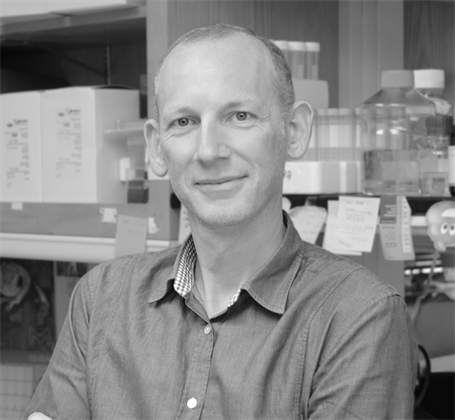
Ben is a principal investigator in the aging and metabolism research program at the Oklahoma Medical Research Foundation.
His lab studies the interaction of mitochondrial energetics, protein turnover, and stress resistance, with the overarching goal of slowing the aging process and extending the period of life in which we are free of disease (healthspan).
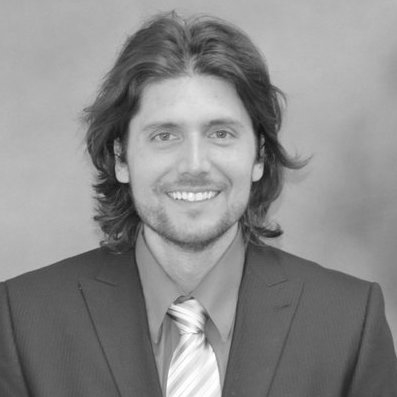
The Molecular and Applied Sciences Laboratory’s research focuses on: 1) How nutrition and exercise affects the molecular environment of muscle and fat tissues (e.g., mRNA and protein expression changes as well as morphology). 2) How aging affects the genetic architecture of skeletal muscle. 3) How weight-training affects intra-muscle cell adaptations. The research conducted in the MASL Laboratory prepares students to conduct animal and cell culture models, as well as human studies. The laboratory routinely conducts Western Blotting, polymerase chain reaction (PCR), histology, and various enzyme assays.
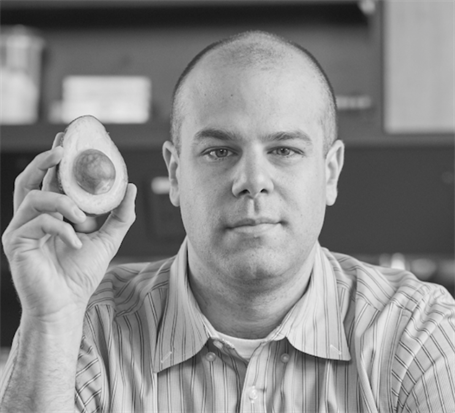
Dr. Spagnuolo has a PhD in Applied Health Sciences from the University of Waterloo, and is currently a Professor at the Department of Food Science at the University of Guelph in Ontario Canada.
His lab has been focused on identifying and developing nutraceuticals as novel therapeutic agents, and figuring out the molecular and cellular mechanisms through which these food-derived bioactive compounds influence cell biology. To that end, the Spagnuolo lab has created a unique, in-house nutraceutical library that is conducive for high-throughput screening. This is useful because it allows the lab to efficiently search for compounds with potent and selective toxicity against cancer cells.
When screening this natural health product library for potential therapeutics, they discovered avocatin B, a mixture of polyhydroxylated fatty alcohols that is found exclusively in avocados. Avocatin B was shown to have selective toxicity to leukemia and leukemia stem cells, and may also be a promising candidate as a drug to block or delay some of the cellular processes that lead to insulin resistance and diabetes.

Brad has a PhD in Exercise Physiology from the University of Idaho, and did further training in biomedical research examining how metabolism and inflammation regulate molecular mechanisms of disease. He is a scientist, a coach, an entrepreneur, a writer, and a speaker, so he wears a lot of different hats.
Brad has been working as the Director of Science at Harness Biotechnology, where he led research behind the aforementioned novel transdermal delivery of carnosine for horses. But he could not overlook the tantalizing potential for this technology to augment performance in human athletes, which is why he also worked on research and development of LactiGo, the first effective topical carnosine product for humans.
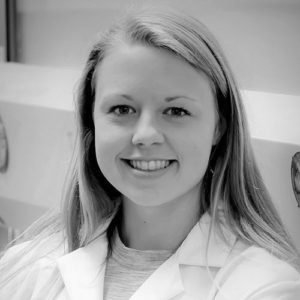
Lucy has a Phd in Nutritional Sciences from the University of Illinois. Her research focused on the effects of diet and exercise on the gut microbiome and gut barrier function in states of health and disease.
She is now involved with research determining the effects of an autoimmune protocol diet on the gut microbiome and intestinal barrier function in eczema and psoriasis, and to examine the effects of exercise on the gut microbiome in the context of inflammatory bowel disease.

Jennifer has a Ph.D. in Clinical Psychology from the University of Michigan, and is currently faculty at the University of Pennsylvania. Her research explores how altering aspects of sleep can produce changes in mood and emotional regulation, particularly in those with major depression but also in normal healthy folks. She has investigated how taking naps enhances elements of cognitive performance, as well as the paradoxical relationship between major depression and sleep loss.
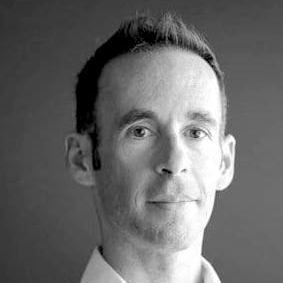
Jeff is a Registered Dietitian with a Master’s in Nutrition Science, the creator of the humanOS Fasting Program and our course on endurance training (i.e., polarized training), and a former guest on this podcast discussing the subject of breakfast skipping. Jeff is also currently conducting his PhD research under the guidance of Dr. Dan Plews (Ironman AG-World Champion) at the Sports Performance Research Institute, New Zealand (SPRINZ) in Auckland, New Zealand.
He has worked with an impressive array of athletes – his clients include multiple Olympians, State Champions, collegiate All-Americans, and professional tennis players, as well as recreational athletes and folks who are trying to complete their first triathlon. So he has plenty of expertise in sports performance and nutrition, both from accumulated experience as well as academic study.
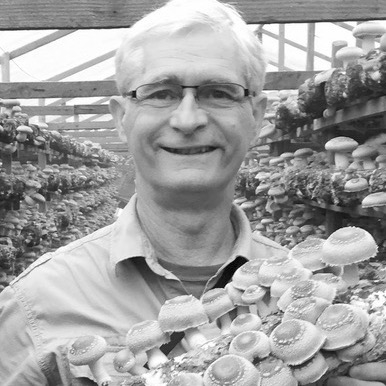
Jeff is one of the foremost experts in the mushroom industry in the US, earned through decades of growing experience. Jeff studied ethnomycology – historical uses and sociological impact of fungi – at the University of Washington in the late 1960s, then went on to work on a commercial mushroom farm in 1973.
Over the following decade, he became the production manager, responsible for the cultivation of over 2 million pounds of agaricus mushrooms per year. He was also involved in the research and development of shiitake, oyster, and enoki mushrooms, which ultimately resulted in the earliest sales of fresh shiitake mushrooms in the US in 1978. The presence of multiple varieties of mushrooms in grocery stores is something many of us kind of take for granted now. But they weren’t always readily available in American stores, and we have Jeff to thank at least in part for that shift.
Fast-forward to 1989: Jeff founded Nammex, a business that introduced medicinal mushrooms to the US nutritional supplement industry. Jeff’s company was the first to offer a complete line of Certified Organic mushroom extracts to the US nutritional supplement industry. Nammex extracts are now used by many supplement companies, and are noted for their high quality based on analysis of the active compounds.

Jeff has a Ph.D in Management from the University of Oregon, and is presently a professor of entrepreneurship at UCF.
His research focuses on the behavior of entrepreneurs, including the processes through which entrepreneurs decide to found new ventures and make business decisions. Recently, he has begun to explore how these processes are influenced by day-to-day variations in biological dynamics – including sleep.
He and his colleagues recently performed a series of elegantly designed studies which explore how sleep (or the lack thereof) might affect two functions that are fundamental to the role of an entrepreneur: the capacity to generate new business ideas, and the ability to assess the viability of business ideas being presented to them. These studies overall suggest that sleep plays a vital role in the cognitive processes behind successful entrepreneurship, and losing sleep makes it harder to recognize how a new technology or service might align with a market.
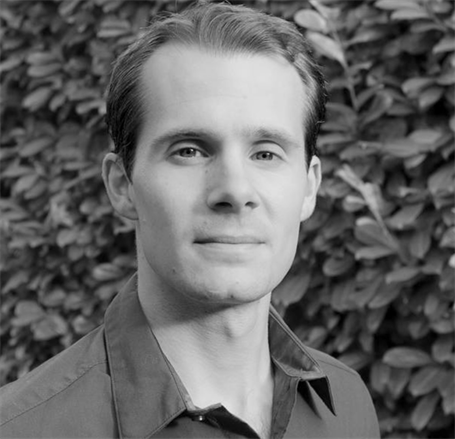
Stephan has a PhD in neuroscience at the University of Washington, then went on to study the neuroscience of obesity and eating behavior as a postdoctoral fellow.
He has spent a total of 12 years in the neuroscience research world studying neurodegenerative disease and the neuroscience of body fatness. His publications in scientific journals have been cited more than 2,100 times by his peers.
He is the founder and director of Red Pen Reviews, which publishes the most informative, consistent, and unbiased popular health and nutrition book reviews available. He is the primary designer of an innovative course-based body weight management program called the Ideal Weight Program, which is part of the HumanOS platform. He also periodically contributes to the scientific literature and is a review editor at Frontiers in Nutrition.
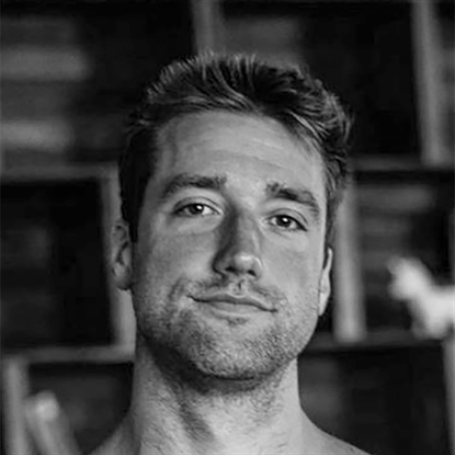
Aaron is a manual therapist and movement coach who has worked with elite athletes, celebrities, and ordinary folks to relieve pain, increase strength, and optimize their movement patterns. He also hosts the Align Podcast, on which he has interviewed more than three hundred of the world’s thought leaders in the areas of movement and wellness.
Aaron is a unique guy, with remarkable insight into the fundamental role of body posture and body movement in health and performance.
The foundation of his message revolves around what he calls physical inhabitance. Physical inhabitance is not just walking and working out – it encompasses the way that you sit, stand, walk, breathe, look, touch, listen, communicate, and generally the manner in which you occupy your body at any given moment throughout the day.
Aaron has authored a book called The Align Method: 5 Movement Principles for a Stronger Body, Sharper Mind and Stress-Proof Life. This book lays out his integrated approach of functional movement and body alignment.
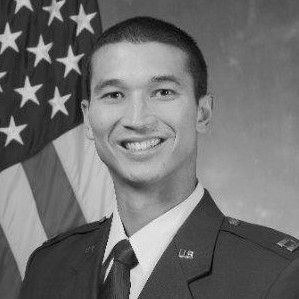
Jason is the CEO and Co-founder of BodySpec, a company that offers DEXA scans on the West Coast. DEXA (dual energy x-ray absorptiometry), as you probably know, has been demonstrated to be one of the most reliable ways to estimate body composition, and offers a number of advantages over other methods. For one thing, the scan is able to differentiate between fat, bone, and fat-free mass. This means that it not only can distinguish between fat and lean tissue, unlike a scale, but it is also not subject to errors associated with variations in bone density. DEXA can also provide measurements for specific areas of the body, meaning that it can highlight differences in where fat is distributed.
BodySpec offers the least expensive DEXA scans available in the country as far as I know ($45 per scan, compared to as much as $100 or more at other providers). They also perform RMR (resting metabolic rate) tests and VO2 max tests at some locations, so you can gain a lot of insight into your body and your performance if you pay them a visit.
But what truly sets BodySpec apart is that they are mobile. BodySpec has a fleet of DEXA scan trucks that can be booked at gyms, offices, and events throughout the west coast. So you can go to their storefront, or they can come to you.
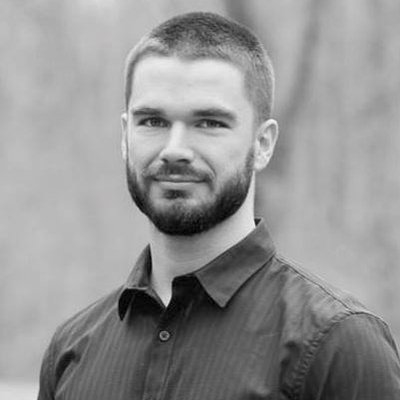
Michael has an MSc in human nutrition from McGill University, and works as a full-time senior researcher at Examine.com, the largest database of nutrition and supplement research on the internet.
Mike writes and updates the Supplement Guides, maintains the company’s vast database of supplement studies, and blogs about various topics in the realm of health.
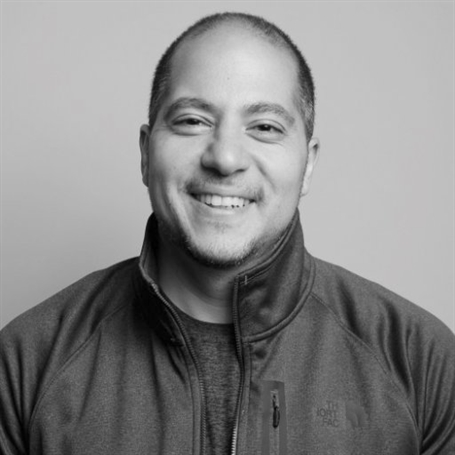
After struggling with his weight since childhood, Tonal founder Aly Orady finally discovered a solution that worked. Kind of. By strength training consistently for many months, he was able to lose 70 pounds. The problem was this schedule wasn’t sustainable.
Aly refused to believe he had to sacrifice his life to keep his body. So when he couldn’t find a better solution, he invented one. By using electromagnetics to create electronic resistance he found (and patented) a way to replace all the equipment he used in the weight room with a single digital weight machine.
And Aly didn’t stop there. Digital weight unlocked endless possibilities. A machine that knew what you were doing, could respond if programmed. It could actually coach the people using it! This was where the idea for Tonal really took off. Aly envisioned a connected system that assessed what you needed to do, told you how to do it, and let you do it from home, in record time. And then he assembled a team to create it.

Nicky has a PhD in nutrition and cardiovascular disease from the University of Western Australia.
Her research has been examining the effects of bioactive compounds occurring naturally in plant-based foods and beverages, and how they are connected to the cardiovascular health benefits associated with a plant-rich diet.
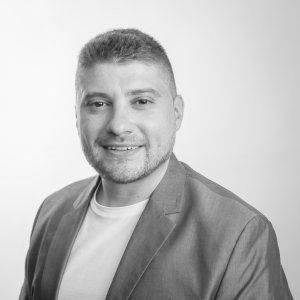
Dan has dedicated his life to helping people sleep better. Daniel has a Ph.D in Human Factors and Applied Cognition from George Mason University, and is an adjunct assistant professor at Penn State University.
He has conducted grant-funded research from the National Science Foundation and the National Institute of Aging to develop sound environments that can diagnose and treat sleep disorders, improve sleep quality, and optimize daytime alertness. He has also developed several mobile sleep apps, such as the Sonic Sleep Coach, which provides personalized sleep feedback and sounds that are designed to modulate sleep quality.
His current research is focused upon accurately tracking sleep quality through wearable technology. But he doesn’t just want to measure it, he wants to make it better. Dan is particularly interested in using technology to enhance slow wave sleep (also known as deep sleep) by manipulating temperature, light, and sound.
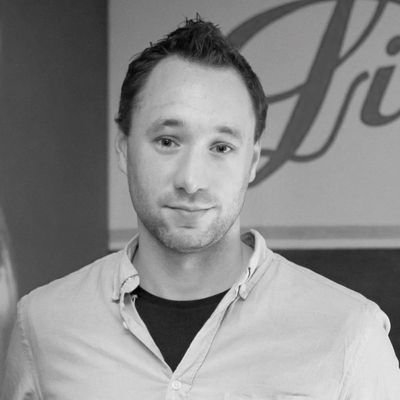
Sander is a post-doctoral researcher at Leiden University Medical Center, where he is investigating brown adipose tissue activation as a therapeutic target to attenuate obesity, type 2 diabetes, and atherosclerosis in humans.
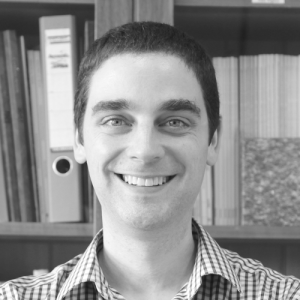
Professor Byrne is a senior academic based at the Westmead Institute for Medical Research. As co-Director of the Center for Immunology and Allergy Research, and Head of The Cellular Photoimmunology Group, Byrne and his team are dedicated to understanding the cellular and molecular mechanisms by which sunlight manipulates the immune response.
Scott has established an international reputation in the field of photoimmunology and made numerous seminal contributions in this area, particularly his discovery that ultraviolet (UV) radiation activates a unique type of regulatory B cell. He uncovered a key role for platelet activating factor and serotonin in UV-BReg activation. This is allowing him to design novel intervention strategies aimed at altering BReg activation in the context of both skin cancer and a CNS-targeted autoimmune attack.
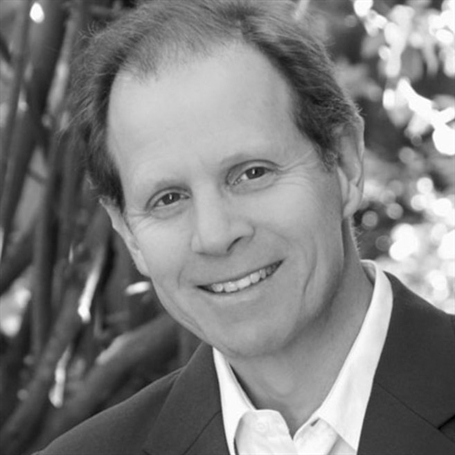
Dr. Siegel is a clinical professor of psychiatry at the UCLA School of Medicine, and is the founding co-director of the Mindful Awareness Research Center at UCLA. He is a pioneer in a field known as interpersonal neurobiology (sometimes referred to as relational neuroscience). Interpersonal neurobiology characterizes human development and function as a product of interactions between the body, the mind, and relationships with one another.
Dan is also the executive director of the Mindsight Institute, a unique educational organization that provides online learning and in-person lectures that examines the interface of human relationships and basic biological processes, with the goal of cultivating mindsight in individuals, families, and communities.
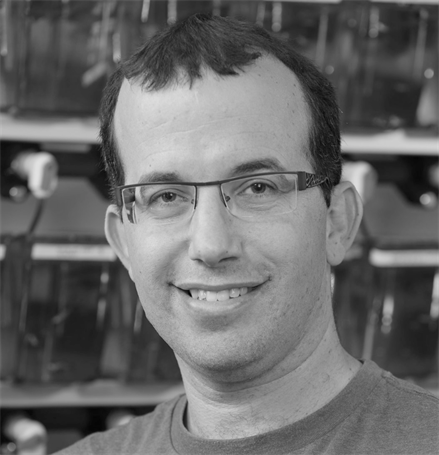
Dr. Appelbaum is an associate professor of Life Sciences at Bar-Ilan University in Israel. His lab is working to unveil the molecular and cellular mechanisms that underlie sleep, psychiatric disorders, and various physiological phenomena – using zebrafish as a model organism.

Richard’s story begins in a way that should sound all too familiar: he developed a serious health problem that failed to respond to conventional medical interventions. But fortunately, this gloomy narrative does have a happy ending. He came to realize that a disruption in his gut microbiota was the likely culprit. Once the dysbiosis was addressed, his health was restored.
This experience inspired him to start the company Thryve Inside. Thryve helps consumers test and learn about their own microbiota, by providing at-home microbiome test kits. But Thryve doesn’t just give you information about your gut microbiome, they also endeavor to provide solutions. They devise personalized probiotics, which are formulated based on your individual gut microbial composition and health goals. Richard’s company uses a comprehensive approach based on symptoms, goals, and testing to determine the right probiotic strains and foods for each person.
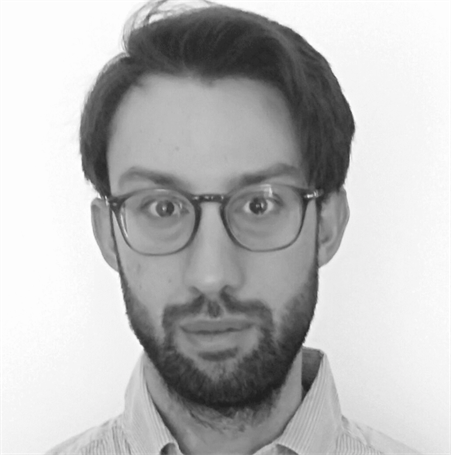
Davide is a research scientist in the field of metabolism and aging. He was previously a post-doc at the Auwerx Laboratory of Integrative Systems Physiology at the École Polytechnique Fédérale de Lausanne (EPFL), where he investigated the role of mitochondrial function in health, disease, and the aging process.
Davide is currently working as a scientific project manager at Amazentis, where he is investigating naturally derived bioactives that could reverse age-related muscle decline by modulating mitochondrial function.
Amazentis’ lead bioactive is urolithin A, which has been shown to induce mitophagy in model organisms. Amazentis recently published the first human clinical trial results on urolithin A, demonstrating that regular oral administration in healthy elderly subjects was safe and effective in improving mitochondrial health, by upregulating mitochondrial gene expression in skeletal muscle.

James has a particular interest in how people can achieve sustainable high performance. He founded JH Performance as a vehicle to share evidence-based, actionable insights from his 15+ years of work and research with some of the most demanding and high-performing clients, in both sporting and business contexts.
James is also pursuing a Ph.D. at Loughborough University, where his research focuses on how workers’ lifestyle and work patterns influence their wellbeing and performance.
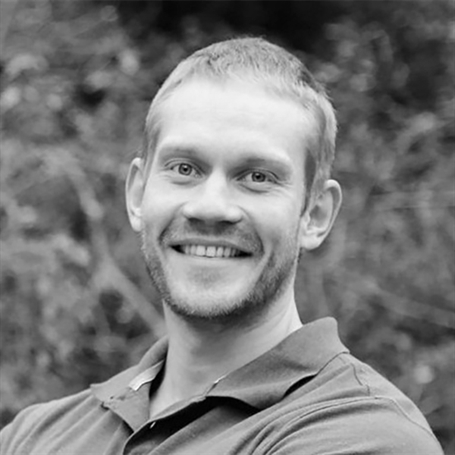
Tommy Wood received a bachelor’s degree in Natural Sciences and Biochemistry from the University of Cambridge before studying medicine at the University of Oxford. He worked as a junior doctor in central London for two years after medical school, and then moved to Norway to complete a PhD in physiology and neuroscience at the University of Oslo.
Tommy is presently Senior Fellow in the Pediatrics Department at the University of Washington, and Chief Scientific Officer of Nourish Balance Thrive, an online-based company using advanced biochemical testing to optimize performance in athletes.
Tommy’s academic work focuses on neonatal brain injury, and in the years to come he plans to study how to manipulate diet to minimize the negative effects of such injury.
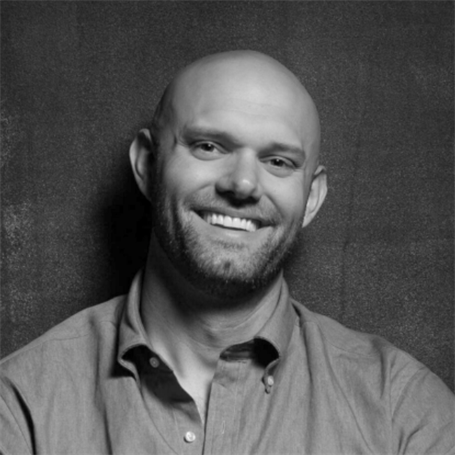
James is an author and entrepreneur who is focused on habits, decision-making, and continuous improvement. His work has appeared in the New York Times, Time magazine, and other major media outlets. Most notably, he is the author of the New York Times bestselling book Atomic Habits, which has sold more than one million copies worldwide.
James has a gift for breaking down complex subjects into simple step-by-step behaviors that can be easily applied to your daily life. In his book, James draws upon a wide array of evidence from psychology, biology, and cognitive neuroscience to construct a useful guide for building and reinforcing good habits and abolishing bad habits.

Mimi is an associate professor of Genetics and Development at Columbia University. Her lab uses circadian mutants of Drosophila melanogaster to unveil the molecular mechanisms that underlie circadian-regulated physiology.
Mimi received her Ph.D. in biology from the University of California, San Francisco, completing her doctoral research in the lab of Timothy Mitchison. She was a postdoctoral fellow at Stanford University in David Schneider's lab.
Her laboratory investigates the role of circadian-regulated physiologies such as innate immunity (including the function of glia, or non-neuronal cells, of the brain), metabolism and sleep in disease progression using Drosophila melanogaster. Disease models that Shirasu-Hiza studies in Drosophila include bacterial infection, aging and fragile X syndrome, the most common monogenic cause of autism in humans. The study of fragile X syndrome and autism is a growing focus of the laboratory. In studying the circadian-dysregulated fragile X model dFmr1 mutant, her laboratory identified defects in phagocytosis mediated by both systemic immune cells and glia, both during development and in adulthood. Through collaboration with Carol Mason’s laboratory, they are now extending this investigation into mice.

After earning a Master’s Degree in Psychology from New York University, Dr. Wilckens attended the University of Pittsburgh, where she participated in the predoctoral training program in Behavioral Brain Research and earned a PhD in Cognitive Psychology in 2012.
As a postdoctoral scholar in the Clinical and Translational Research Training Late-Life Mood Disorders program, Dr. Wilckens worked closely with her mentors, Drs. Daniel Buysse and Martica Hall, to further develop her research skills focusing on the role of sleep in brain health and cognition.
Dr. Wilckens is the author of peer-reviewed articles appearing in journals including the Journal of Sleep Research and Psychology and Aging, as well as numerous abstracts and other publications. She has also presented her findings at the annual meetings of the Society of Neuroscience, Associated Professional Sleep Societies, and the Cognitive Neuroscience Society as well as other professional organizations.

Dr. Stuart McGill is a professor emeritus at the University of Waterloo, where he was a professor for 30 years. His laboratory and experimental research clinic investigated issues related to the causal mechanisms of back pain, how to rehabilitate back-pained people and enhance both injury resilience and performance. His advice is often sought by governments, corporations, legal experts, medical groups and elite athletes and teams from around the world.
His work produced over 240 peer-reviewed scientific journal papers, several textbooks, and many international awards. He mentored over 37 graduate students during this scientific journey.
During this time he taught thousands of clinicians and practitioners in professional development and continuing education courses around the world.
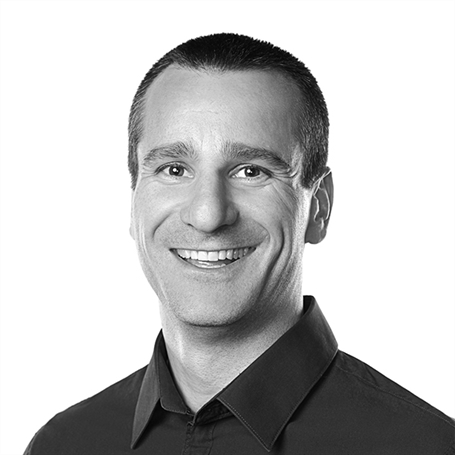
Keith is the head of the Functional Molecular Biology Laboratory in the Department of Neurobiology, Physiology, and Behavior at the University of California, Davis. He is a renowned scientist in the emerging field of molecular exercise physiology, and is leading a team of researchers attempting to develop ways to improve muscle, tendon and ligament function.
The goal of his laboratory is to understand the molecular determinants of musculoskeletal development and the role of exercise in improving health and performance. To achieve this goal, he and his team work on muscle, tendon, and ligaments from 2- and 3-dimensional tissue culture, in vivo wild type and genetically modified animals, and humans.
Of particular interest are: 1) the interplay between nutrition and exercise and the mammalian target of rapamycin complex 1 (mTORC1) in the maintenance of muscle mass; 2) the role of the amino acid transceptor LAT1 in the activation of protein synthesis and maintenance of muscle mass; 3) the mechanism of ER stress-induced loss of protein synthesis and how this leads to anabolic resistance in muscle; and 4) the role of growth factors and loading on the activation of the Egr-1 transcription factor and the development and mechanics of ligaments.
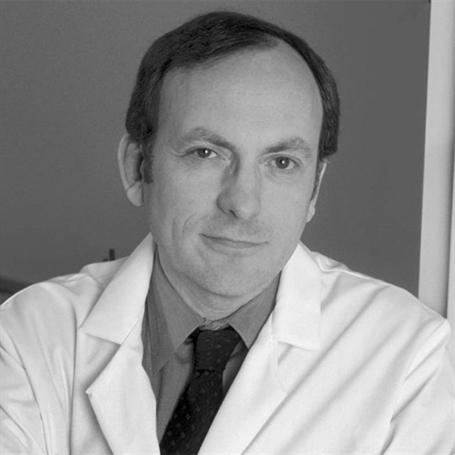
Mike West is the CEO of AgeX Therapeutics. AgeX is a subsidiary of BioTime that is focused on the development and commercialization of novel therapeutics targeting human aging. Dr. West has been on the Board of Directors at BioTime since 2002 and is now co-CEO of this company too. Were this not enough, he is a Director of Asterias Biotherapeutics, another of BioTime’s subsidiary companies.
Dr. West’s current work builds on several decades of experience in biotechnology research. After graduating with a PhD in the biology of cellular aging from Baylor College of Medicine in 1989, he founded Geron in 1990. At Geron, Dr. West coordinated the first collaborative effort to isolate human embryonic stem cells for use in regenerative medicine. Geron also did research on telomerase, working with Thomas Cech (winner of the 1989 Nobel Prize in Chemistry) to clone a part of the telomerase enzyme. And Cech wasn’t the only of Dr. West’s decorated recruits, for Geron’s Scientific and Clinical Advisory Board included three (!) Nobel Laureates including James Watson, co-discoverer of the structure of DNA.
Dr. West’s work in this space continued as he transitioned to a role as CEO, President, and Chief Scientific Officer of Advanced Cell Technology (now the Astellas Institute for Regenerative Medicine), where he dedicated his time to developing cutting-edge human stem cell technologies for use in regenerative medicine.

Susan has a long-standing interest in natural products derived from traditional Indian (Ayurvedic) medicine and has been using her expertise in biochemistry to investigate potential biomedical applications for these plant extracts.
She is presently a postdoctoral fellow at the Icahn School of Medicine at Mount Sinai, where she is investigating the combined impact of Ayurvedic herbs and probiotics on the gut-brain axis in the context of neurodegenerative disease and metabolic syndrome.
Previously, she was a Ph.D. student at McGill University, where she and colleagues had discovered that a novel synbiotic formulation beneficially affected the gut microbiota and resulted in a variety of health effects in fruit flies.
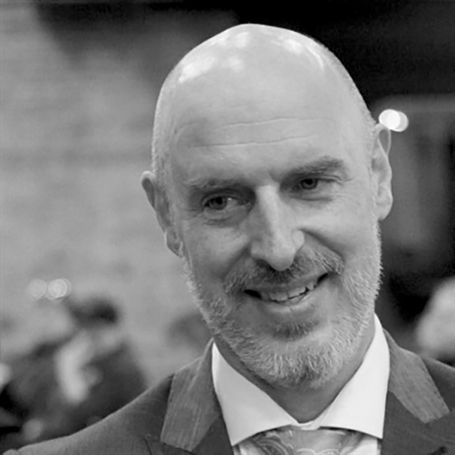
Dr. Hill founded the Peak Brain Institute, where people go to train and thereby improve their brains. He is renowned for his skills as a practitioner of a method named neurofeedback, but other interventions such as mindfulness meditation are integral components of his work.
Dr. Hill has a PhD in Cognitive Neuroscience from UCLA’s Department of Psychology and continues to research attention and cognition. He is the host of the Head First Podcast with Dr. Hill, is Lead Neuroscientist at truBrain, and lectures at UCLA, teaching courses in psychology, neuroscience, and gerontology.
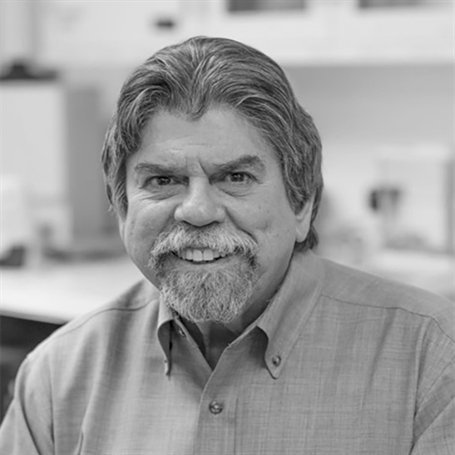
Professor Nunez is principal investigator at the Nunez Lab at Michigan State University, where he studies neural and endocrine control of circadian rhythms in mammals.
The lab aims to understand the neural pathways through which light influences function of the hippocampus – a brain region critical for learning and memory. To this end, they have been using Nile grass rats as a model organism to test the impacts of different ambient light conditions on learning and memory. A major advantage of these rodents specifically as models is that they are diurnal - meaning that they are awake during daylight hours like humans.
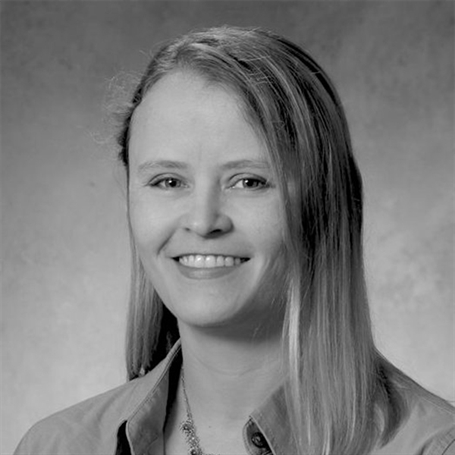
Kristen Knutson is an Associate Professor of Neurology and Preventive Medicine at the Feinberg School of Medicine at Northwestern University.
Her research focuses on the association between sleep, circadian rhythms and cardiometabolic diseases, including diabetes, obesity and cardiovascular disease. She focuses on real world assessments of habitual sleep patterns, and performs detailed clinical measures of biomarkers of disease risk. In addition, her research examines whether sleep and circadian rhythms partially mediate socioeconomic and/or racial/ethnic health disparities.
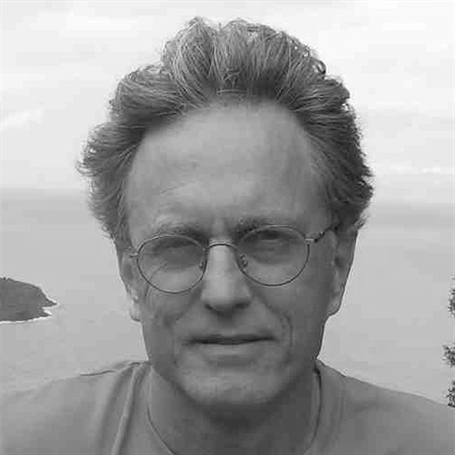
Dr. Hay’s lab is investigating various areas in developmental and evolutionary biology, including the following:
Cell death, neurodegenerative disease and mitochondrial quality control: One of their goals is to understand the genetic and molecular mechanisms that regulate cell death, neurodegeneration, and cancer. Much of their work on neurodegeneration, particularly as it relates to defects in mitochondrial function, Alzheimer's disease and Parkinson's disease, occurs in collaboration with the lab of Ming Guo, MD, PhD, a practicing Neurologist and researcher at UCLA. They have developed a model of mtDNA mutation accumulation in muscle and are using this system to identify molecules that can promote the selective removal of mutant mtDNA, a form of quality control.
Controlling the composition and fate of wild populations: A second goal addresses three questions in applied evolutionary population biology.
Lifetime, single shot contraception: In a third project they are working to develop single shot, lifetime (but reversible) contraceptives for a variety of mammalian species. In brief, there remains a need for very long-term or permanent, non-surgical methods of male and female contraception for humans that can be implemented in resource-poor settings in which access to health care may be sporadic. There is also a desire for non-lethal, humane, methods of population control for captive and free roaming animals. They have developed a technology, vectored contraception (VC), which can contribute to these goals.
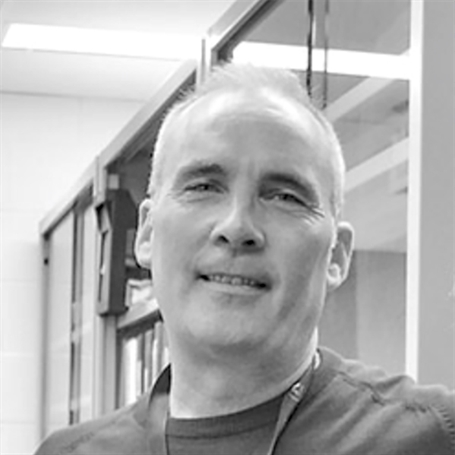
Professor Peever is the Director of the Centre for Biology Timing and Cognition at the University of Toronto. His research team uses optogenetic and pharmacogenetic methods to dissect the brain circuitry controlling behavioral arousal state, particularly sleep. This work will not only identify the pathways that trigger sleep and wakefulness, it will also be invaluable in understanding how breakdown in brain circuits contributes to sleep disorders such as narcolepsy and REM sleep behavior disorder.
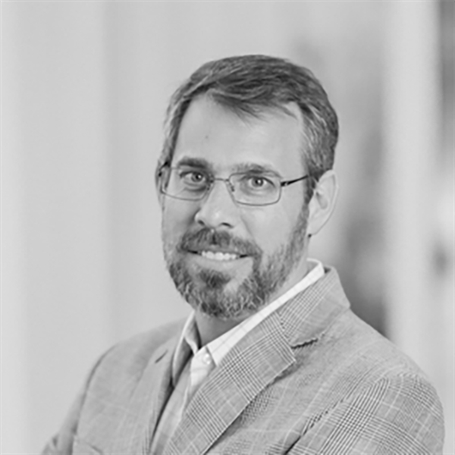
Paul has been a member of multiple Executive Management teams of both publicly traded multi-national corporations and successful startup opportunities. He currently serves as the CEO of Locus Biosciences, an emerging biotech focused on the discovery and development of a novel class of CRISPR/Cas Antimicrobials.
Paul also serves as Vice President of the Friends Board at the North Carolina Museum of Natural Sciences, and as a Visiting Professor at North Carolina State University’s Poole College of Management. He serves as an executive-in-residence for the HiTEC Graduate Program, the University’s Entrepreneurship Collaborative.

Dr. Light is a pharmacologist and a leader in the field of cellular electrical activity. He is chief investigator at the Light Lab at the University of Alberta and is Director of the University of Alberta’s Diabetes Institute. His lab researches ion transport processes controlling cellular excitability, utilizing a combination of electrophysiological, live-cell imaging, biochemical and molecular techniques to study the biophysics, physiology and pharmacology of ion channels and exchangers at the molecular, cellular, organ and whole organism levels.
Currently, his lab are studying the following:
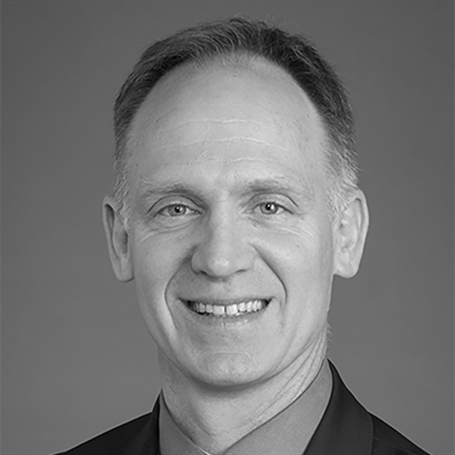
Dr. Jonathan Burdette is a Professor of Neuroradiology at Wake Forest School of Medicine in Winston-Salem, NC, where he is the Vice Chair of Research for the Department of Radiology.
Following graduation with a degree in Biomedical Engineering from Duke University, he received his MD degree from The University of Tennessee College of Medicine in Memphis and did his radiology residency at The University of Michigan in Ann Arbor. His neuroradiology fellowship was at Wake Forest University, where he has been ever since. He has published 90 peer-reviewed manuscripts.
His current research focuses on using advanced MR imaging techniques to study the brain as a complex network. He is a founding member of the Laboratory for Complex Brain Networks (LCBN), an interdisciplinary group of scientists dedicated to using functional MRI (fMRI) to study the brain using network theory approaches. The LCBN studies how exercise, nutritional habits, beetroot juice, and meditation affect the functioning brain in the elderly. Additional research interests include the effects of music on the brain, the effects of pesticide exposure on brain development in children of Latino farmworkers, and identifying a brain network phenotype that is characteristic of vulnerability to alcohol use disorder.
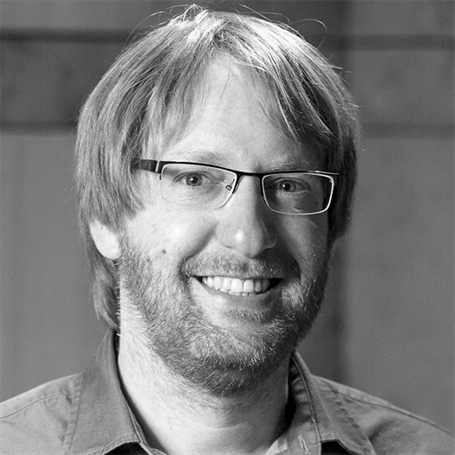
Alon Keinan studies how human genetic variation has arisen from evolutionary history. His research focuses on elucidating the history of modern human populations and on developing computational methods for searching for genes important in human biology. With a background in computer science and statistics, Keinan develops theoretical tools and applies them to genomic data sets, bridging theoretical population genetics and empirical studies.
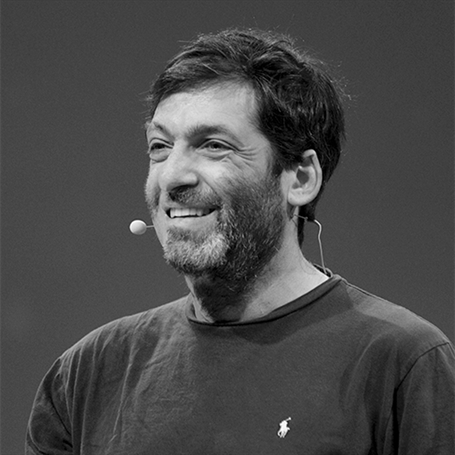
Dan Ariely is the James B. Duke Professor of Psychology and Behavioral Economics at Duke University and a founding member of the Center for Advanced Hindsight. He does research in behavioral economics on the irrational ways people behave, described in plain language.
His immersive introduction to irrationality took place as he overcame injuries sustained in an explosion. During a range of treatments in the burn department he faced a variety of irrational behaviors that were immensely painful and persistent. He began researching ways to better deliver painful and unavoidable treatments to patients.
Ariely became engrossed with the idea that we repeatedly and predictably make the wrong decisions in many aspects of our lives and that research could help change some of these patterns.
After using his knowledge of decision-making and behavioral economics to convince his girlfriend to marry him, Ariely realized that understanding decision-making can help anyone in their daily life.
Irrationally Yours, Predictably Irrational, The Upside of Irrationality, The (Honest) Truth About Dishonesty, the movie Dishonesty and the card game Irrational Game are his attempt to describe his research findings in non-academic terms, so that more people will discover the excitement of behavioral economics and use some of the insights to enrich their own lives.

Chris Kresser, M.S., L.Ac., is a renowned expert, leading clinician, and top educator in the fields of Functional Medicine and ancestral health, and the New York Times-bestselling author of The Paleo Cure. Listed among the 100 most influential people in health and fitness by Greatist.com, he was awarded “Best Inspirational Voice” and “Best Health & Wellness Website” by Paleo magazine in 2019. His latest book is Unconventional Medicine.
Co-director of the California Center for Functional Medicine, Chris founded The Kresser Institute in 2015 to provide the next generation of functional health practitioners and coaches with the skills and tools they need to turn the tide of chronic disease—and change the future of medicine. Through the Kresser Institute, Chris created and launched the ADAPT Practitioner and Health Coach Training Programs, and he and his team have trained over 2,000 health professionals around the world in his unique approach.
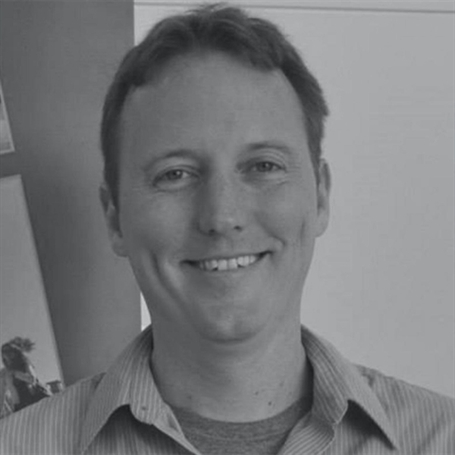
Neil decided nearly twenty years ago that extending human lifespan was the most important endeavor he could possibly pursue. To that tend, he enrolled at the University of South Florida and earned his PhD in Cell and Molecular Biology, and conducted research on how to slow down the various mechanisms that drive aging.
Neil is presently CEO of Osiris Green, a company that offers a DNA methylation analysis service, that measures age-related epigenetic changes to estimate the biological age of an individual.
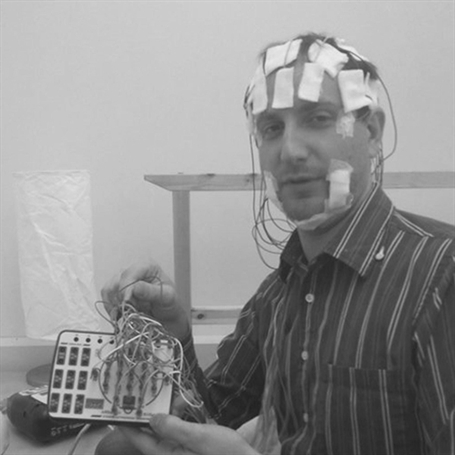
Bryce is a cognitive neuroscientist studying how sleep disturbance contributes to cognitive decline in aging and dementia. His current focus examines how quantitative EEG features during sleep track dementia neuropathology, cognitive impairment, and brain structure.
Previously, he was a postdoctoral fellow at UC Berkeley, specializing in the role of sleep in normal and abnormal cognitive aging. He received his PhD at Northwestern, studying the effects of sleep loss on brain function in the lab of Phyllis Zee.

Dr. Fonken completed her PhD in Neuroscience in Dr. Randy Nelson’s laboratory at The Ohio State University. Laura’s dissertation research focused on the effects of nighttime light exposure on physiology and behavior. Next, Laura completed a post-doctoral fellowship in Dr. Steven Maier’s laboratory in the Department of Psychology and Neuroscience at the University of Colorado Boulder. In the Maier laboratory, Laura’s research focused on understanding how heightened neuroinflammatory responses contribute to mood disorders and cognitive impairments with aging. Current research in her laboratory focuses on endogenous (e.g. circadian rhythms) and exogenous (e.g. infection and injury) factors that influence neuroimmune function across the lifespan.
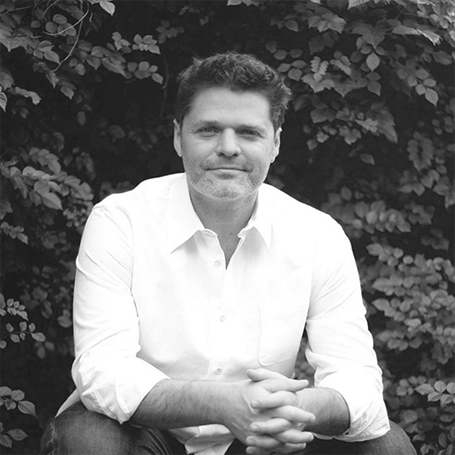
Daniel Schmachtenberger’s central interest is long term civilization design: developing better collective capacities for sense-making and meaning-making, to inform higher quality choice-making…towards a world commensurate with our higher values and potentials.
He has an eclectic educational background, mostly from outside of institutional settings, in the natural sciences, social sciences, and philosophy…with an emphasis in the epistemics needed to better approach ‘wicked’ problems, and the ethical considerations to inform the design criteria for adequate solutions.
Daniel has participated in projects to survey the landscape of existential and catastrophic risks, advance forecasting and mitigation strategies, and develop capacities for the kinds of multi-agent coordination needed to implement viable solutions. Associated work has been done to synthesize and advance civilizational collapse and institutional decay models, insofar as they are useful in both scenario modeling and designing more resilient systems.
That body of work also explored the social architectures that give rise to the coordination failures underneath and driving all catastrophic risk scenarios, and identified a finite set of generator functions. Categorical solutions to those generator functions would solve for the causes of collapse, obsoleting the need to focus on specific instances. Such solutions are believed to be achievable and would represent the kernel of a new and robust civilizational model…that has the capacity for enduring antifragility in the presence of the (destabilizing) power conferred by decentralized exponential technology.
Advancing those models for long term viability, along with advancing the capacities for sense-making, design, and coordination needed to support the necessary nearer-term transitional and protective work, is Daniel’s mission and focus.

Jari A. Laukkanen is a cardiologist with a long-term research interest in prevention of cardiovascular diseases, including studies on physical activity, cardiorespiratory fitness and well-being.
His research is centered on investigating the role of cardio-metabolic risk factors in relation to the future incidence of cardio-metabolic diseases and sudden cardiac death in the general population. Principally his research is aimed at improving cardiovascular risk prediction through better identification of clinically relevant risk factors.
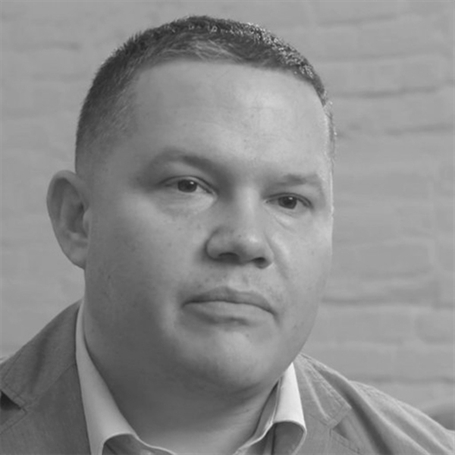
Kelly is Co-Founder and CEO of Fisher Wallace Laboratories, an FDA-regulated manufacturer of wearable medical devices for the treatment of insomnia, anxiety and depression, as well as wellness devices for sleep and stress management (Circadia®). The company also developed the first virtual reality neurostimulation platform for consumer healthcare, called KORTEX.
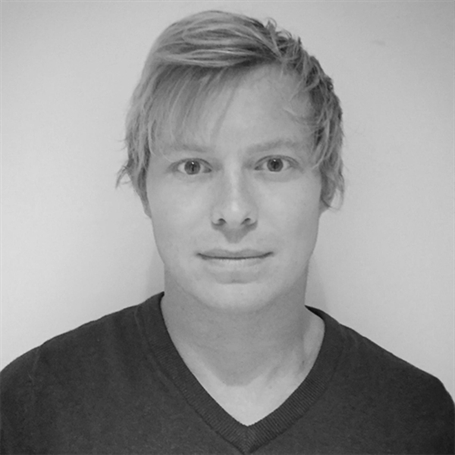
Keith completed his Ph.D. at the Scripps Research institute and Florida Atlantic University with Dr. William Ja, where he studied the genetic and neuronal integration of sleep and feeding. His work focused on the development of a high throughput system for measuring sleep and feeding in the fruit fly which he used to examine the role of food consumption and energy expenditure in sleep.
He is now a postdoctoral fellow in the de Lecea lab at Stanford, where he will be exploring new technologies to identify circuits bridging digestive/metabolic sensory systems with sleep in mammals.
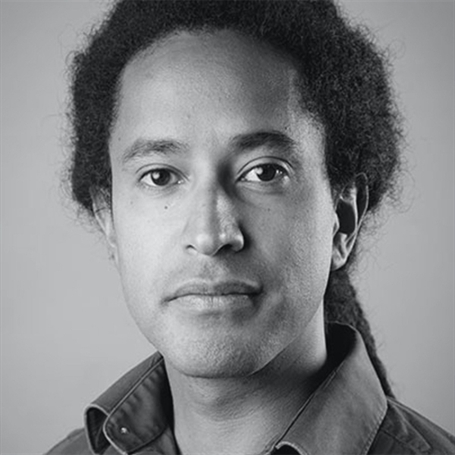
Dr. Stanton is a licensed clinical health psychologist and Assistant Professor at California State University, East Bay. Dr. Stanton holds a doctorate in Clinical Psychology with a focus in Behavioral Medicine from Duke University. He completed his clinical internship with a focus in Behavioral Medicine at the VA Palo Alto Healthcare System (affiliate of Stanford University) and his Postdoctoral Fellowship at Stanford University and the VA Palo Alto. He received his B.A. from Brown University.
Dr. Stanton's research focuses on psychosocial determinants of obesity. His clinical work in clinical health psychology integrates mind-body skills such as mindfulness and hypnosis with cognitive behavioral therapy to treat health problems including obesity, hypertension, chronic pain, insomnia and depression. His work has been recognized at national and international scientific conferences, and he is a co-author of several studies which have been published in various academic journals, including Molecular Psychiatry, Psychosomatic Medicine, and Harvard Review of Psychiatry.
